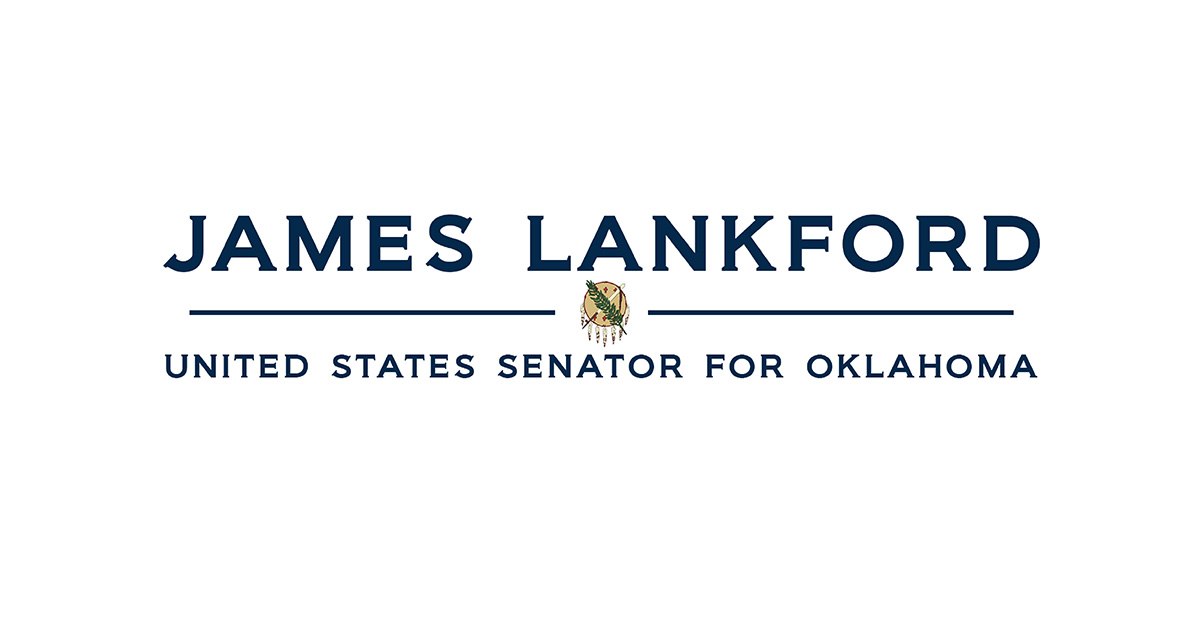Source: United States Senator for Oklahoma James Lankford
04.14.22
OKLAHOMA CITY, OK – Senator James Lankford (R-OK) joined Senator Ron Johnson (R-WI) and House Committee on Oversight and Reform Ranking Member, Rep. James Comer (R-KY), along with 20 of their colleagues to send a letter to Centers for Medicare and Medicaid Services (CMS) Administrator Chiquita Brooks-LaSure seeking information on what safeguards CMS has in place to address improper payments in the Medicaid program. Lankford has worked throughout his time in Congress to root out waste, fraud, and abuse of taxpayer-funded programs in order to protect the funds for the most vulnerable in our nation who need them.
The members wrote in their letter, “According to CMS, Medicaid made $57.36 billion in improper payments in fiscal year 2019. Medicaid’s improper payments accounted for 32.8 percent of all improper payments across the federal government. In FY 2020, improper payments rose to $86.9 billion, meaning more than one out of every five Medicaid payments were improper. A recent report by the Foundation for Government Accountability found almost all of the improper payments were due to eligibility errors, administrative oversights, or outright fraud. Further, the report found the rate of Medicaid improper payments has nearly quadrupled since the implementation of Obamacare in 2014.”
The members went on to say, “These staggering rates of improper payments in Medicaid programs are inexcusable. As CMS data underscores, these improper payments threaten the integrity of the Medicaid program. Moreover, we are concerned the policies implemented in response to the COVID-19 pandemic—expanded Medicaid eligibility, increased federal funding and suspended state audits—possibly added to the significant levels of improper payments in the program.”
Lankford, Johnson, and Comer are joined in the letter by Senators Jim Inhofe (R-OK), Rand Paul (R-KY), Rick Scott (R-FL), Marsha Blackburn (R-TN), Ted Cruz (R-TX), Mike Lee (R-UT), and Mike Braun (R-IN) and Representatives Ralph Norman (R-SC), Jody Hice (R-GA), Glenn Grothman (R-WI), Andy Biggs (R-AZ), Nancy Mace (R-SC), Byron Donalds (R-FL), Fred Keller (R-PA), Jake LaTurner (R-KS), Virginia Foxx (R-NC), Scott Franklin (R- FL), Yvette Herrell (R-NM), and Chip Roy (R-TX).
Read more about the letter in The Daily Caller.
The full text of the letter can be found HERE and below.
Dear Administrator Brooks-LaSure:
For years, we have raised concerns to the Centers for Medicare and Medicaid Services (CMS) regarding the staggering rate of improper payments in the Medicaid program. Despite our calls to action, the improper payment rate continues to increase. As we previously noted, the improper payments rate is likely an underestimate, and some estimates show that 27 percent, or more than $100 billion annually, could be improper. This alarming amount threatens the viability of a program designed for Americans in need. We write seeking additional information on what safeguards CMS has in place to address improper payments in the Medicaid program.
According to CMS, Medicaid made $57.36 billion in improper payments in fiscal year 2019. Medicaid’s improper payments accounted for 32.8 percent of all improper payments across the federal government. In FY 2020, improper payments rose to $86.9 billion, meaning more than one out of every five Medicaid payments were improper. A recent report by the Foundation for Government Accountability found almost all of the improper payments were due to eligibility errors, administrative oversights, or outright fraud. Further, the report found the rate of Medicaid improper payments has nearly quadrupled since the implementation of Obamacare in 2014.
The improper payment rate in some states is as high as 44 percent—nearly double the national average. Eligibility errors cause almost all—95 percent—of the improper payment rates in the worst performing states and cause 80 percent of improper payments nationwide. Improper payments doubled over the last decade in some states like Illinois. Meanwhile, according to the data CMS provided, California’s error rate was only 6.3 percent—significantly less than the nationwide average—despite rapid growth in the state’s Medicaid program. This low percentage appears implausible considering a 2018 Health and Human Services Inspector General audit which found more than half of sampled enrollees in California’s Medicaid program were paid to ineligible beneficiaries.
These staggering rates of improper payments in Medicaid programs are inexcusable. As CMS data underscores, these improper payments threaten the integrity of the Medicaid program. Moreover, we are concerned the policies implemented in response to the COVID-19 pandemic—expanded Medicaid eligibility, increased federal funding and suspended state audits—possibly added to the significant levels of improper payments in the program.
To better understand the policies that CMS instituted to increase accountability and reduce improper payments in the Medicaid program, please provide the following information:
- The underlying data and methodology used to determine improper payment rates for all 50 states and the District of Columbia, including the eligibility component of the rate, for each year.
- The processes and procedures CMS uses to validate each state’s improper payment rate. This includes sample data sets used by states or CMS to review eligibility determinations.
- A list of CMS’s efforts to recover the hundreds of billions of dollars in improper Medicaid payments.
- The estimated improper payment rate due to the Medicaid expansion in response to COVID-19 and the number of Americans newly enrolled in the Medicaid program in response to COVID-19.
- The actions taken by CMS to date to ensure the program only enrolls those who meet eligibility requirements. Please provide this information on a state-by-state basis.
The Committee on Oversight and Reform is the principal oversight committee of the US House of Representatives and has broad authority to investigate “any matter” at “any time” under House Rule X.
Please provide this material as soon as possible but no later than 5:00 p.m. on April 27, 2022. Thank you for your attention to this important inquiry.
Sincerely,
###
